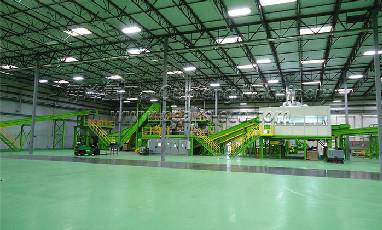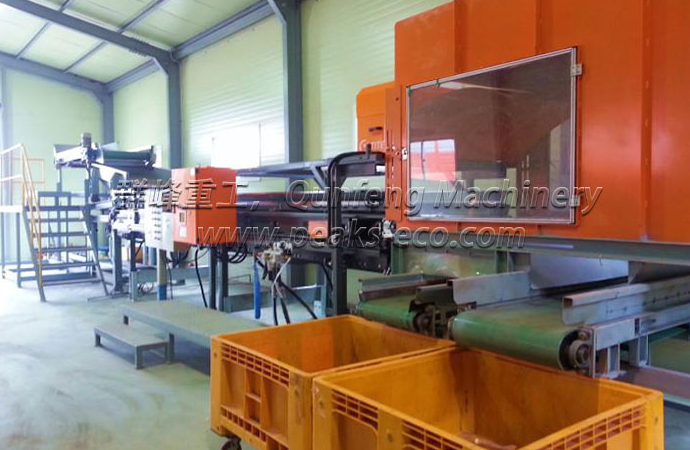1. Resource-saving (volume reduction and volume reduction) is a good way to prevent problems from the source.
Resource-saving (volume reduction, volume reduction) is to reduce or suppress the production of plastic waste, including less use, that is, use as much as possible, or useless; or by filling natural organic materials or inorganic materials, to reduce the amount of plastic, Or reduce the consumption of disposable plastic packaging by improving product quality, increasing functionality, extending life, and multi-use. Thinning, that is, on the premise of ensuring application performance, by changing the raw material formula and product structure design, make the product lighter and thinner. Volume reduction, that is, reducing the volume of plastic waste through compaction, dissolution, defoaming, etc., and developing appropriate packaging to suppress excess packaging, etc.
2. Recycling (recycling) is an important measure of environmental harmlessness.
The garbage sorting system supplier believes that recycling (recycling) is not only a technical issue but more importantly, it includes a whole set of system engineering issues from legislation, recycling, production, inspection, and sales. It is an effective method for all countries to actively develop to ensure the sustainable development of the national economy and the coordination of economy, resources, and environment. In general, a considerable part of plastic waste is easy to recycle. However, for disposable plastic waste, it must be based on the type, quality, quantity, flow direction, and treatment method of the waste in each place. It is easy to recycle and has recycling value. Economically cost-effective should be recycled as much as possible, including materials, heat, Fuel oil, chemicals, etc., which are not only conducive to protecting the environment but also have significant decisions from the perspective of saving the earth’s limited resources and effectively using renewable resources. However, the current recycling will face many technical and economic difficulties regardless of the establishment of waste classification, collection and recycling systems, the development of efficient recycling technology and equipment, and the product direction of recycled materials. Increase investment in science and technology, and work together as a key issue to study and solve.

Municipal Waste Sorting Machine
3. Harmless (degradable)
In real life, there are many disposable plastic wastes that are difficult to collect, such as compost bags, garbage bags, supermarkets, light plastic packaging bags used in the morning market, etc. or even mandatory collection, economic benefits are poor or even non-effective, such as Chinese food Tableware, plastic film, etc., these fields are more suitable for the use of degradable plastics. The use of municipal waste sorting machine has the following characteristics:
①Practicability: its application performance and hygienic performance are similar or equivalent to ordinary plastics;
②Degradability: After completing the use function, it can degrade faster under natural environmental conditions and become harmless fragments or debris easily absorbed by the environment;
③Safety: Substances generated during degradation and remaining after degradation are not harmful to the environment or potentially harmful;
④Economy: The price is the same as or slightly higher than similar ordinary plastic products. Therefore, for those disposable plastic products that are large, scattered, messy, difficult to collect, or economically unreasonable even if forced to collect, it is more appropriate to use degradable plastics, which can be degraded and broken into harmless fragments in a short period of time to achieve plastic waste reduction. Tolerance reduction, the purpose of reducing or suppressing environmental pollution. With the passage of time, it can eventually degrade completely and return to nature.

没有评论:
发表评论